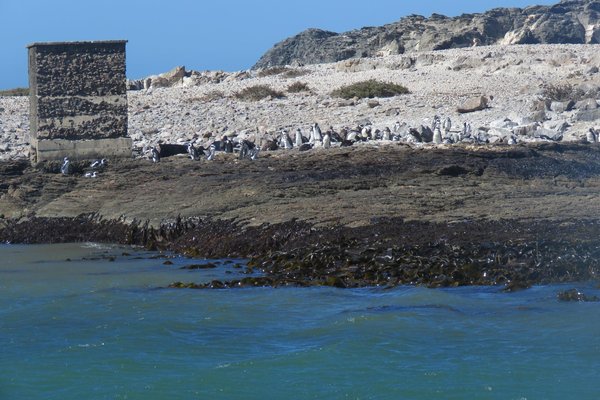Namibia
Benguela Current
The Benguela Marine ecosystem is one of the most productive coastal upwelling zones in the global oceans, of which an area offshore southern Namibia is known as the most concentrated and intense upwelling regime in the world.
The high levels of primary productivity of this ecosystem support an important global reservoir of biodiversity and biomass of zooplankton, fish, sea birds and marine mammals. Bird guano produced by the large numbers of sea birds resulted in the globally unique guano platforms of Namibia, built at suitable localities on the coast that allows sustainable industrial harvesting of organic fertilizer.
Site Info
Official Information
- Full Name
- Benguela Current Marine Ecosystem Sites (ID: 6094)
- Country
- Namibia
- Status
-
On tentative list 2016
Site history
History of Benguela Current
- 2016: Added to Tentative List
- Added to tentative list
- Type
- Mixed
- Criteria
Links
- UNESCO
- whc.unesco.org
All Links
UNESCO.org
- whc.unesco.org — whc.unesco.org
Community Information
- Community Category
- Natural landscape: Marine and Coastal
- Human activity: Agriculture
Travel Information
Recent Connections
News
No news.
Recent Visitors
- MoPython
- MAURO PODDA PANI
- Stanislaw Warwas
- Vernon Prieto
- Tatiana Nikulnikova
- Bernard Joseph Esposo Guerrero
- Vanessa Buechler
Visitors of Benguela Current
Community Reviews
Show full reviews
Visited February 2020.
I have visited only the northern part of the potential nominated area which is not included in Els’s review, but is mentioned in the short description of the site on UNESCO website, in the Erongo Region, north of Walvis Bay and Swakopmund, southern and central coastal parts of Dorob National Park, National West Coastal Tourist Recreational Area and north-western edges of Namib-Naukluft National Park.
The most interesting areas from my point of view are Cape Cross Seal Reserve (part of the Skeleton Coast) where in January 1486 landed the first European team leaded by Diogo Cao on his way to India; he erected a padrao (stone pillar with a cross and royal coat of arms) on a hill by the coast which was to taken to Berlin in 1893; now we can see a copy of the original one; I do not know if there was a big colony of seals at that time, but today it is one of the largest colonies of brown Cape fur seals (Arctocephalus pusillus) in the world. In the past the seals were hunting in here for trade and to protect the fish stock. You can imagine the smell and the noise!
The second place that I would recommend to see is the so-called Bird Island south of Swakopmund where the wooden platforms still can be seen; they were made as a link between the coast and the island where thousands of birds leave the guano behind.
…
Keep reading 0 comments
Few of you will be familiar with the Benguela Current. At least I wasn’t before I started researching my Namibia trip. At the country’s Tentative List I found an entry called The Benguela Current Marine Ecosystem Sites. It could surely do with a more catchy name and/or an epic subtitle if it ever were to be nominated, but in reality it is quite an interesting site. The Benguela Current is an ocean current that carries icy cold, wind-driven upwelled waters from the depths of the Atlantic Ocean. These waters are very rich in nutrients, and they support a whole food chain from phytoplankton via fish to sea birds and marine mammals.
The proposed nomination includes a marine ecosystem along the southern Namibian coast including Mercury Island, Ichaboe Island, Halifax Island and Possession Island. In the coastal town of Lüderitz there are catamaran trips on offer to one of these islands: Halifax. They leave daily (weather permitting) at 8 a.m., take 2 hours and cost 450 Namibian dollar (about 30 EUR). Halifax Island is home to the largest colony of jackass-penguins in Namibia.
Lüderitz (“home of the sand storm”) is known for its windy weather, and I wondered how that would affect the boat trip. Just to be sure I had taken an anti-seasickness pill an hour before we left. Fortunately the sea wasn’t rough at all – the winds mostly start from the late morning - and we did not travel so fast. It was lovely to sit outside at …
Keep reading 0 comments
